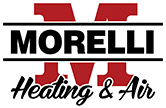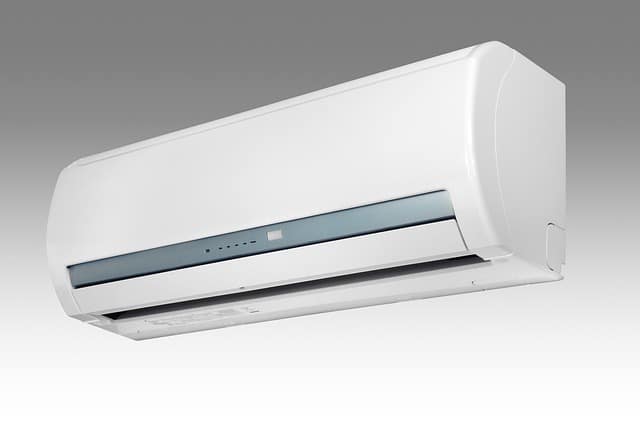Are you dealing with water leaking from your HVAC unit? Don’t panic – this is a common problem that can be quickly and easily fixed at home. But before you take action, it’s important to understand why the leak is occurring in order to find the right solution. In this blog post, we cover the most common causes of water leaks from HVAC units so that you can accurately diagnose the issue and take steps toward solving it!
Understand the Reasons for Water Leaking from Your HVAC Unit
Water leaking from your HVAC unit can be a frustrating and potentially damaging issue if not monitored or taken care of. It’s important to understand the reasons behind this occurrence, in order to properly address the problem and prevent any further damage. One cause could be a clogged air filter, which can lead to ice formation on the evaporator coil. Another cause could be a blocked drainage system, which can result in water backup and overflow. Additionally, low refrigerant levels or a damaged condensate pan could also be contributing factors. By understanding the reasons for water leakage, you can take the necessary steps to resolve the issue and ensure your HVAC system is functioning properly.
a) Clogged Condensate Drain
If you’ve ever experienced a malfunctioning air conditioner, chances are the culprit was a clogged condensate drain. These drains are crucial to your unit’s ability to function properly, but they can become blocked with dirt, debris, or even mold. When this happens, it prevents the excess moisture generated by your air conditioner from draining properly, which can lead to water damage or even a breakdown of your unit. Thankfully, unclogging a condensate drain is a relatively simple task for an HVAC professional. So if you notice any signs of a clogged drain, such as a funky smell or water pooling around your unit, don’t hesitate to give your local HVAC technician a call. They’ll have your unit back up and running in no time!
b) Condenser Coil Freezing Over
When it comes to your air conditioning unit, a frozen condenser coil can be a real nuisance. Not only does it hinder the efficiency of your AC, but it can also cause damage to the system if not addressed promptly. A frozen condenser coil happens when there is an issue with airflow or refrigerant levels, causing the coil to become too cold and ultimately freeze over. One telltale sign of a frozen coil is when cool air is no longer coming out of your vents. If you suspect that your condenser coil has frozen over, it’s important to shut off your unit and call a professional HVAC technician to provide a thorough inspection and repair.
c) Malfunctioning Float Switch
A malfunctioning float switch can cause a lot of trouble for your septic system. This small device is responsible for regulating the amount of water that enters the tank and signaling the pump to turn on and off. If it’s not working properly, it can result in flooding, sewage backups, and even system failure. It’s important to address the issue as soon as possible to avoid any costly repairs or health hazards. Don’t wait until it’s too late, get a professional to diagnose and fix the problem before it worsens. With a properly functioning float switch, your septic system can operate smoothly and efficiently.
Common Solutions to Fix a Leaking HVAC Unit
When it comes to a leaking HVAC unit, there are several common solutions that homeowners can explore before calling in a professional. One option is to carefully inspect the unit for any visible leaks or cracks and apply an epoxy sealant where necessary. Another solution is to replace the unit’s damaged or worn-out gaskets, which can often be done without the help of a technician. Additionally, regular maintenance and cleaning of the unit can help prevent leaks from occurring in the first place. By taking these steps, homeowners can save money and ensure that their HVAC unit operates efficiently and effectively.
a) Unclog the Condensate Drain Line
Dealing with a clogged condensate drain line is not something any homeowner wants to experience. When your air conditioning system is working correctly, all the moisture created is removed via the drain line. However, if the drain line becomes clogged, it can cause serious damage to your AC system. Water may start leaking, which can result in significant water damage to your home. To avoid any unfortunate incidents, it’s best to try and unclog the condensate drain line as soon as possible. There are a few methods you can try, from using a wet/dry vac to a pipe snake. If you’re unsure or uncomfortable with attempting to unclog it yourself, it’s always best to call in a professional to do the job for you.
b) Check the Float Switch and Change Its Setting
Your sump pump is an essential part of your home’s protection against flooding, so it’s important to make sure it’s functioning properly. One component to check is the float switch, which determines when the pump turns on and off. If the switch is set too high or too low, it can cause the pump to either not turn on when it needs to or to run continuously, which can damage the pump. By checking and adjusting the float switch, you can ensure that your sump pump is ready to handle any water that comes its way.
c) Clean or Replace Evaporator Coils or Fans
Is your air conditioning unit just not blowing as cold as it used to? The culprit may be dirty or damaged evaporator coils or fans. Over time, buildup from dust, dirt, and other debris can create a barrier between the coils and fans, hindering their ability to efficiently cool the air. If left unchecked, this can lead to increased energy bills and even complete system failure. The good news is that cleaning or replacing these components is a relatively simple fix that can be done by a professional technician. By ensuring your evaporator coils and fans are clean and running smoothly, you can enjoy a comfortable and cool indoor environment all summer long.
Preventative Steps to Avoid Future Water Leaks from your HVAC System
No homeowner wants to deal with the hassle and potential damage of water leaks from their HVAC system. Fortunately, taking some preventative steps can reduce the likelihood of these leaks occurring. First and foremost, it’s important to have your system regularly maintained by a licensed professional. This includes changing filters, inspecting coils, and checking for any potential leaks. Additionally, keeping the area around your HVAC system clean and free of debris can prevent clogs that may lead to leaks. And finally, consider installing a condensate pump or pan overflow switch to automatically shut off your system if a leak is detected. By taking these steps, you can breathe easy knowing that your HVAC system is less likely to cause water damage in your home.
a) Change Air Filters Regularly
The air we breathe is important to our health and well-being, but did you know that the air inside our homes can be even more polluted than the air outside? That’s why it’s essential to change your air filters regularly. By doing so, you can reduce the amount of dust, pollen, and other particles in the air, making it safer and healthier for you and your family. Not only that but regularly changing your air filters can also improve the efficiency of your heating and cooling system, saving you money on your energy bills. Overall, taking care of your air filters is a simple yet crucial step toward creating a healthier home environment.
b) Make Sure Airflow is Properly Balanced
A well-functioning HVAC system is key to keeping your home comfortable and healthy. One often overlooked aspect is proper airflow. When the airflow is not balanced, certain rooms may be too hot or too cold and the system may have to work harder than necessary, leading to higher energy bills. To ensure that your system is performing as it should, it’s important to have a professional inspect and adjust the airflow. This will not only improve the comfort level in your home, but also increase the lifespan of your HVAC system. Don’t neglect this important aspect of your home’s air quality!
c) Schedule Annual Maintenance Visits
Regular maintenance is key to keeping your belongings in top-notch condition, and this is especially true for your home. While it may be tempting to ignore your heating and cooling system until something goes wrong, scheduling annual maintenance visits can save you money and headaches in the long run. Certified professionals can identify potential issues before they become major problems, so you can rest easy knowing that your HVAC system is functioning optimally. Don’t wait until the heat of summer or the chill of winter sets in – schedule your annual maintenance visit today. Your wallet (and your home) will thank you.
There are numerous possible causes for water leakage in an HVAC unit. To ensure optimal performance year-round, it is highly recommended to schedule annual maintenance for your HVAC system. Don’t delay addressing those water leaks; book your appointment today and bid farewell to any issues with your HVAC system!









Excellent! Please Rate us 5-stars
...and leave a helpful review.
Would you recommend Morelli Heating and Air?